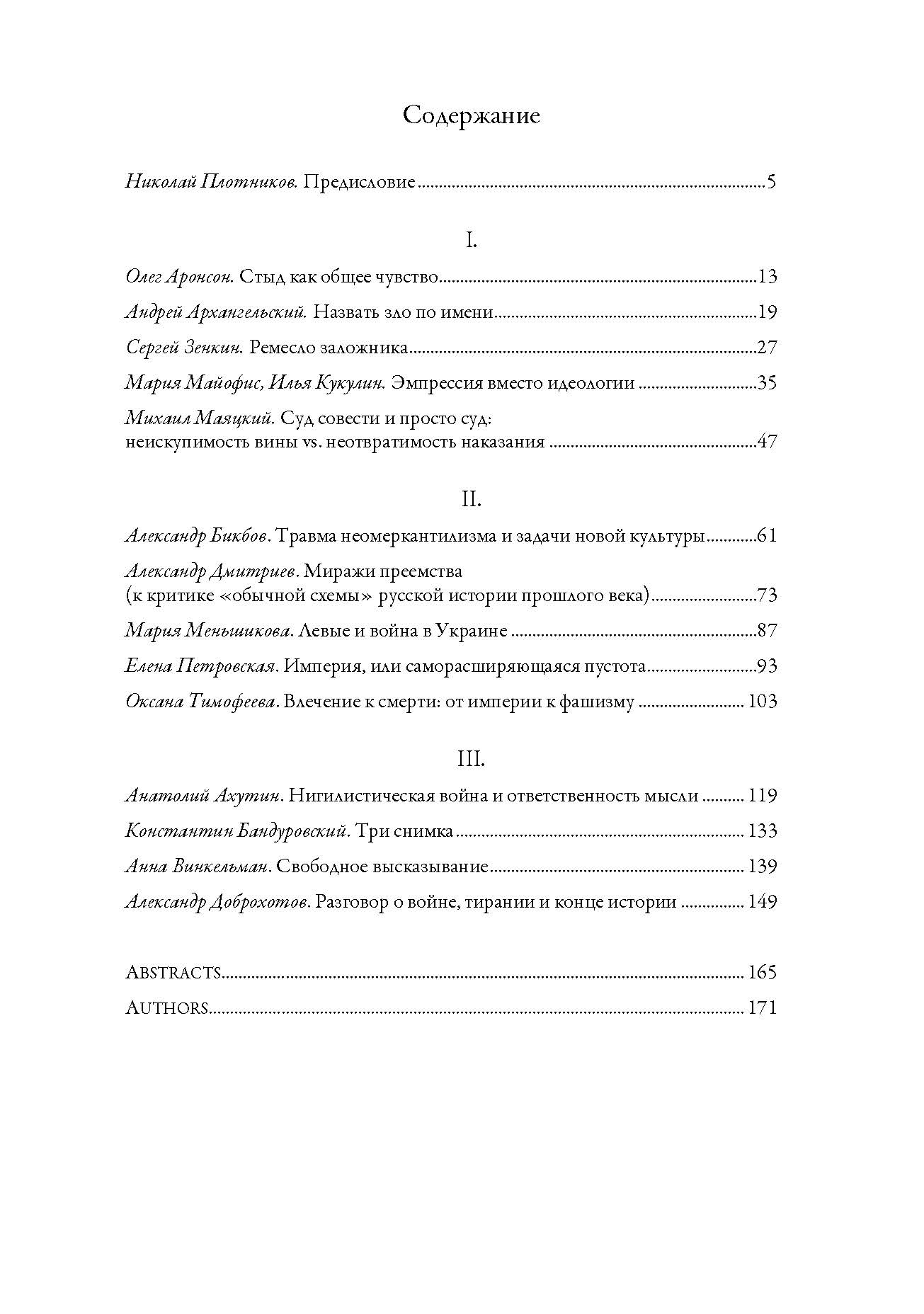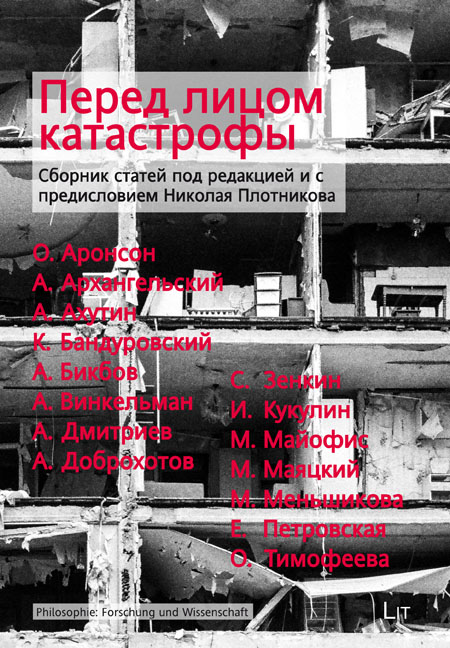Перед лицом катастрофы.
Сборник статей О. Аронсона, А. Архангельского, А. Ахутина, К. Бандуровского, А. Бикбова, А. Винкельман, А. Дмитриева, А. Доброхотова, С. Зенкина, И. Кукулина, М. Майофис, М. Маяцкого, М. Меньшиковой, Е. Петровской, О. Тимофеевой. Под редакцией и с предисловием Н. Плотникова.
Berlin: Lit Verlag 2023 (Philosophie: Forschung und Wissenschaft, Bd. 57)
29,90 € (eBook: free download)
ISBN: 978-3-643-15317-3
The war unleashed by the Russian authorities against the people of Ukraine brings death and suffering. Its consequences for Russian society itself, as for the whole European culture, consist in a civilizational catastrophe which Russian authorities forbid to call by its real name. Which possibilities remain to speak out critically about that in Russian, while intellectual activities in Russia have been deprived of their fundamental conditions, namely of clear concepts and of an open exchange of views.
The present collection is a steady attempt to diagnose the current moment and to discuss the contours of Russia's new future. This is made possible by the reenactment in this volume of a discursive space of freedom built without regard for censorship and self-censorship. Representatives of three generations of Russian humanities and of several research domains have come together to clarify the historical and philosophical meaning of the ongoing catastrophe. The authors are located in Russia, Ukraine, Europe and America. Yet, across all borders, they are bound by a common interest to critically explore key facts and concepts giving sense to the events: ideology, empire, hostage, shame, guilt, responsibility…
Their texts offer an exploration and critique of mental isolationism as an attitude of stigmatization and exclusion of the Other prevailing in today's Russian political class. The authors pay special attention to social and cognitive mechanisms that affirm such an attitude. The illusions of superiority and of exceptionalism nourishing it, the political resentment referring to phantom national grievances and the temptations of indifference anesthetizing international solidarity are analyzed from anthropological, historical and ethical points of view. Drawing on an anti-colonial attitude and on a historical critique of imperial expansionism, turning to the reflexive legacy of the World War II and mobilizing extensive and more recent international experience, the authors emphasize that the way out of the catastrophe lies in a consistent deconstruction of the isolationism and in cautious work with its consequences.
Written in a vivid style and on a competent basis, this volume would become an important tool for both specialists and the larger educated public letting a crisp understanding of the current events and mindsets.






